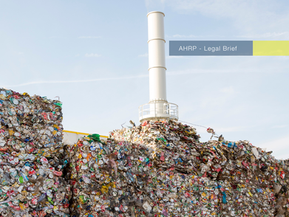Energy & Utilities
The outlook for Indonesia's energy and utilities sector is influenced by the country's economic growth, energy demand, policy reforms, and the global transition towards cleaner energy sources. Investments in renewable energy, infrastructure development, and sustainable practices will likely shape the sector's growth trajectory. Collaborations between public and private sectors, along with innovative solutions and technology advancements, will be essential to meet Indonesia's energy needs while transitioning towards a more sustainable and diversified energy landscape.

December 2024
Indonesia's energy and utilities sector displayed several key trends and opportunities:
Energy Demand and Growth: Indonesia's growing economy has led to increased energy demand across sectors, including electricity, transportation, and industry. This demand growth presents opportunities for investments and infrastructure development in the energy sector.
Energy Diversification: The government has been focusing on diversifying the country's energy sources to reduce reliance on fossil fuels. This includes promoting renewable energy sources like geothermal, solar, hydro, and wind power.
Renewable Energy Investments: Investments in renewable energy projects have been increasing, with government support and incentives encouraging the development of renewable energy infrastructure.
Electricity Generation: The country aims to expand electricity generation capacity to meet growing demand, improve access to electricity in remote areas, and enhance grid reliability and stability.
Infrastructure Development: Investments in energy infrastructure, including power plants, transmission lines, and distribution networks, are crucial to support energy sector growth and meet the population's needs.
Policy and Regulatory Framework: Changes in regulations and policies related to energy, including tariffs, subsidies, and renewable energy targets, significantly impact the sector's growth and attractiveness to investors.
Challenges in Access: Despite progress, some regions in Indonesia still face challenges in accessing reliable and affordable energy services. Addressing these disparities remains a priority.
Environmental Considerations: Efforts towards reducing greenhouse gas emissions and mitigating environmental impacts from energy production and consumption are gaining importance.
The outlook for Indonesia's energy and utilities sector is influenced by the country's economic growth, energy demand, policy reforms, and the global transition towards cleaner energy sources. Investments in renewable energy, infrastructure development, and sustainable practices will likely shape the sector's growth trajectory. Collaborations between public and private sectors, along with innovative solutions and technology advancements, will be essential to meet Indonesia's energy needs while transitioning towards a more sustainable and diversified energy landscape.





